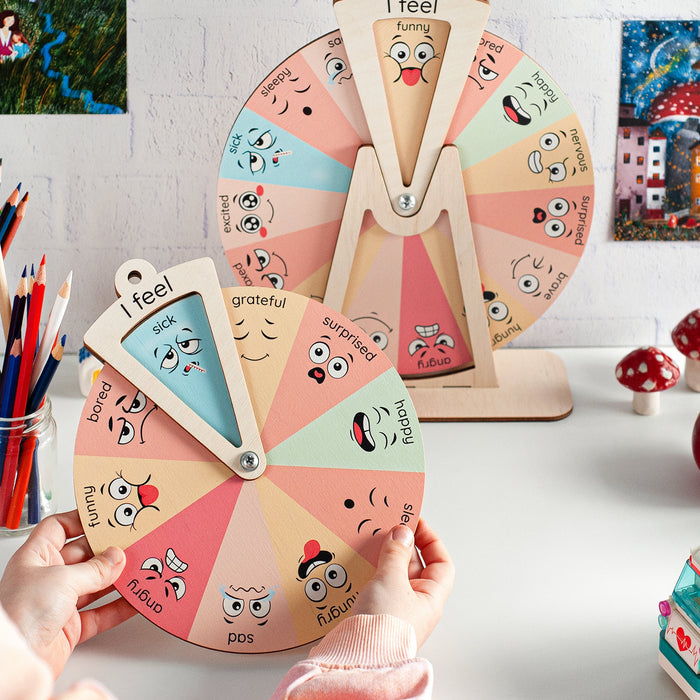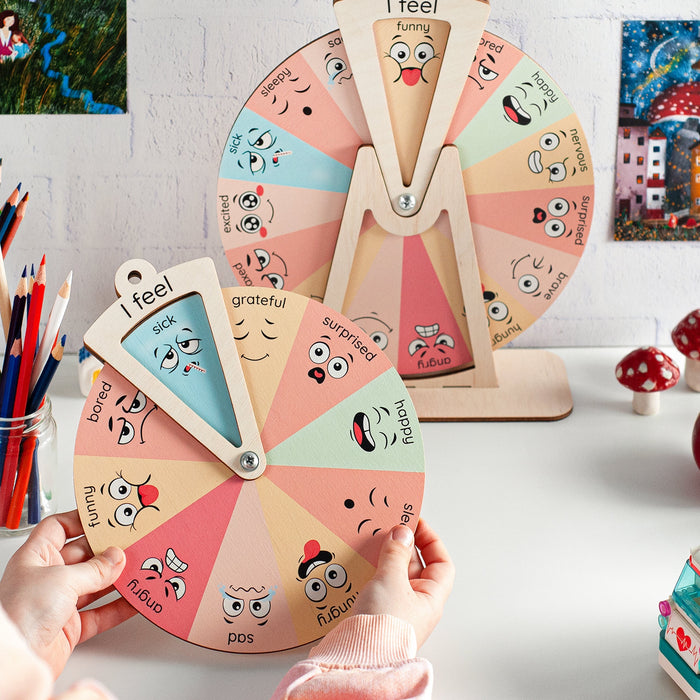The Montessori Emotion Wheel is a visual aid designed to help children identify and understand their emotions. Rooted in the Montessori method's principles of hands-on learning and individualized exploration, this tool empowers children to express and manage their feelings in a healthy and constructive manner.
At the core of the Montessori Emotion Wheel are the primary emotions - joy, sadness, anger, and fear. Surrounding these core emotions are a spectrum of nuanced feelings, providing children with a comprehensive vocabulary to articulate their emotional experiences. By engaging with the Emotion Wheel, children learn to recognize and label their emotions accurately, laying the foundation for effective emotional communication.
One of the key strengths of the Montessori Emotion Wheel lies in its adaptability to various age groups. Younger children may benefit from simplified versions, focusing on the primary emotions, while older children can delve into the intricacies of the extended emotional spectrum. This flexibility allows educators to tailor their approach based on the developmental stage and individual needs of each child.
The Emotion Wheel is often introduced through interactive activities and discussions in a Montessori classroom. Teachers guide students in exploring different emotions, discussing scenarios that evoke particular feelings, and encouraging open communication. By integrating the Emotion Wheel into daily activities, Montessori educators create a supportive environment where children feel validated and understood in expressing their emotions.
Beyond mere identification, the Montessori Chore Charts Preschoolers Emotion Wheel promotes the development of emotional regulation skills. Children learn that it is natural to experience a range of emotions, and they acquire tools to manage these feelings effectively. Through activities like deep breathing exercises, mindfulness practices, and art therapy, children develop coping mechanisms that empower them to navigate challenges with resilience and composure.
Moreover, the Emotion Wheel fosters empathy and compassion by helping children understand that everyone experiences a unique emotional journey. This awareness lays the groundwork for building positive relationships, as children learn to appreciate and respect the diverse emotional landscapes of their peers.
Parents play a crucial role in reinforcing the lessons learned in the Montessori classroom. The Emotion Wheel serves as a valuable bridge between school and home, prompting meaningful conversations about emotions within the family. Parents can create a supportive atmosphere by actively listening to their child's emotional experiences, validating their feelings, and collaboratively exploring strategies for emotional well-being.






Comments